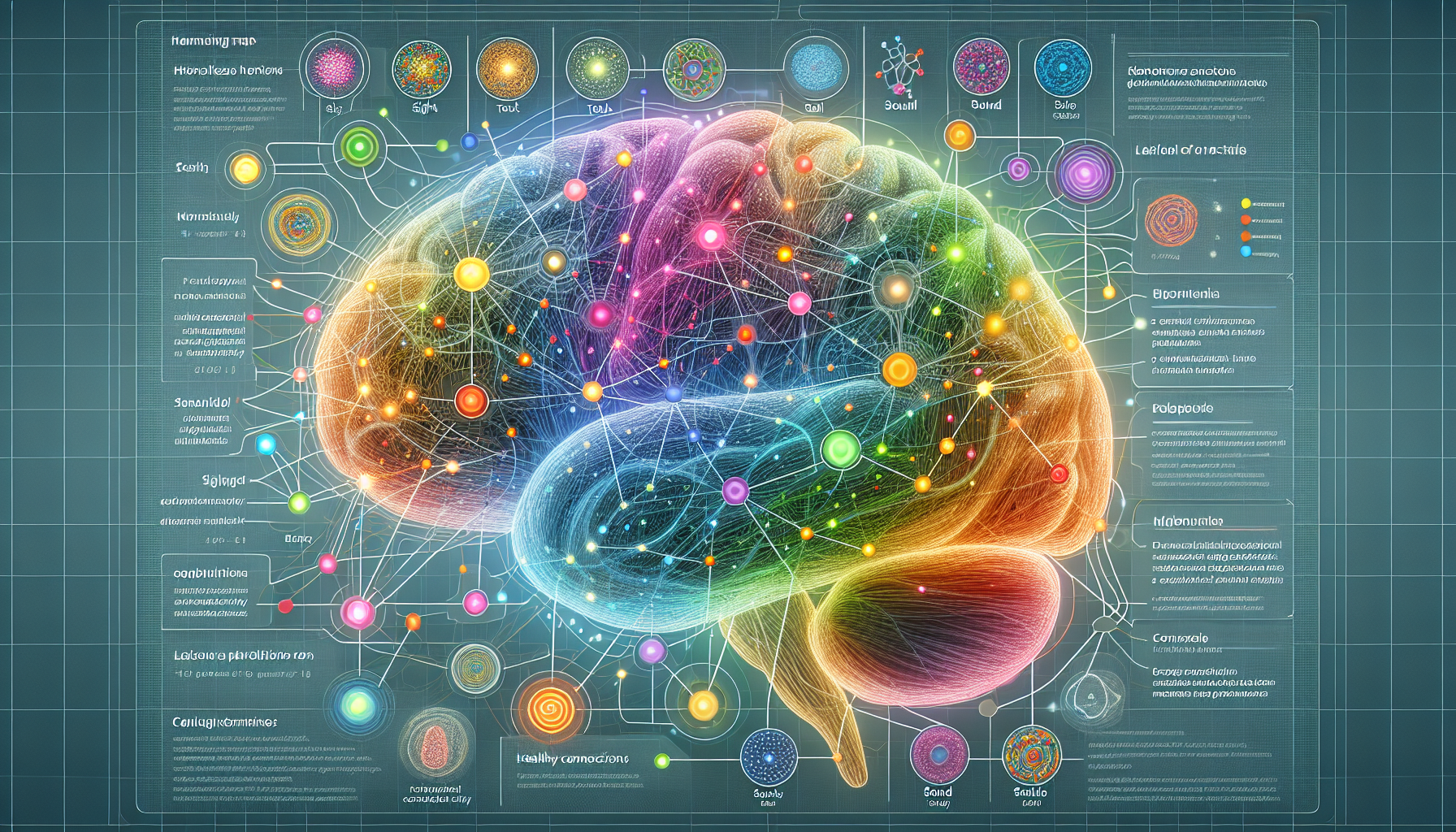Sensory health is a foundational aspect of our well-being, intricately connected to both physical and mental performance. It encompasses the efficiency and effectiveness with which our body processes and responds to sensory stimuli. This vast domain involves the intricate workings of the five basic senses—sight, hearing, taste, touch, and smell—and their impact on our everyday functioning and health. In this comprehensive exploration, we’ll delve into the role sensory health plays in our lives, how it influences our physical and mental capabilities, and strategies to enhance sensory well-being.
The Link Between Sensory Health and Performance
The human body is a marvel of sensory integration, where sensory inputs are constantly being processed to guide movement, inform decisions, and enable interactions with the environment. Sensory health is not just about the absence of sensory impairments; it’s about how effectively the sensory system communicates with the brain, leading to optimal physical and mental output.
For instance, athletes rely on their sensory systems to perform at their peak. The proprioceptive feedback they receive is crucial for balance, coordination, and spatial awareness. Similarly, professionals in high-stakes environments depend on their auditory and visual senses to process information quickly and accurately. This shows the importance of sensory health in achieving high levels of performance across various activities.
Sensory Health’s Role in Physical Performance
Vestibular System and Balance
The vestibular system, located within the inner ear, is key to maintaining balance and posture. It provides the brain with information about motion, head position, and spatial orientation. This system’s health is vital for athletes, dancers, and anyone engaging in physical activity, as it directly influences their ability to execute movements with precision.
Proprioception and Body Awareness
Proprioception refers to the body’s ability to sense its position in space. It’s crucial for fine motor skills and coordination. Impairments in proprioceptive function can lead to challenges with everyday tasks and decrease physical performance. Enhancing proprioception through targeted exercises and therapies can significantly improve athletic prowess and physical activity levels.
The Impact of Sensory Processing on Motor Skills
Sensory processing disorders can disrupt the development of motor skills. For children and adults alike, the integration of sensory inputs is crucial for activities ranging from writing to engaging in sports. A well-functioning sensory system allows for smooth, coordinated movements, which are essential for optimal physical performance.
Sensory Health’s Influence on Mental Performance
Attention and Cognitive Function
Our senses are gateways to learning and cognition. Sensory health impacts our ability to focus, process information, and retain knowledge. Auditory and visual processing skills, for example, are fundamental for academic achievement and workplace productivity.
Emotional Regulation and Sensory Input
There’s a profound connection between sensory processing and emotional well-being. The way individuals process sensory information can affect their mood, anxiety levels, and stress responses. Ensuring a healthy sensory environment can promote mental clarity and emotional stability.
Sensory Health and Communication Skills
Effective communication relies heavily on sensory health. Hearing and speech are intertwined, with auditory processing being crucial for language development and social interactions. Similarly, non-verbal cues depend on visual and tactile processing, influencing our ability to read situations and respond appropriately.
Strategies to Enhance Sensory Health
Sensory Diet
A sensory diet is a personalized set of activities and experiences designed to provide the sensory input a person needs to stay focused and organized throughout the day. This can include physical exercises, tactile stimulation, or auditory therapy. For more insights, explore Sensory Diets: What They Are and Who Can Benefit.
Sensory Integration Therapy
Sensory integration therapy, often used in occupational therapy, helps individuals respond to sensory stimuli in a more adaptive manner. It’s particularly beneficial for those with sensory processing disorders, helping to improve focus, behavior, and social interactions. Learn more about therapy’s benefits in the article The Benefits of Sensory Integration in Occupational Therapy.
Technological Aids
Advancements in technology have introduced innovative tools to support sensory health. From apps that assist with auditory processing to virtual reality systems that enhance balance and coordination, technology is playing a significant role in fostering sensory well-being.
External Resources for Further Exploration
To deepen your understanding of sensory health’s impact on performance, consider exploring these niche resources:
- The Sensory Processing Disorder Foundation, which offers detailed research and resources on sensory processing challenges and their management.
- The Vestibular Disorders Association, providing information and support for individuals with vestibular dysfunctions.
- The Star Institute for Sensory Processing Disorder, specializing in treatment, research, and education for sensory processing disorder.
Conclusion
Sensory health is an essential component of both physical and mental performance, affecting everything from athletic prowess to cognitive abilities and emotional well-being. By understanding the role of sensory systems and employing strategies to maintain and improve sensory health, individuals can enhance their overall quality of life. Integrating sensory-healthy practices into daily routines can lead to significant improvements in performance across various aspects of life.
For further reading on sensory health and its broad impact, consider exploring topics such as Sensory Health and Its Relationship with Sleep Quality and how sensory processing influences our rest and rejuvenation. Whether you’re an athlete, a student, or a professional, prioritizing sensory health can unlock your highest potential.



